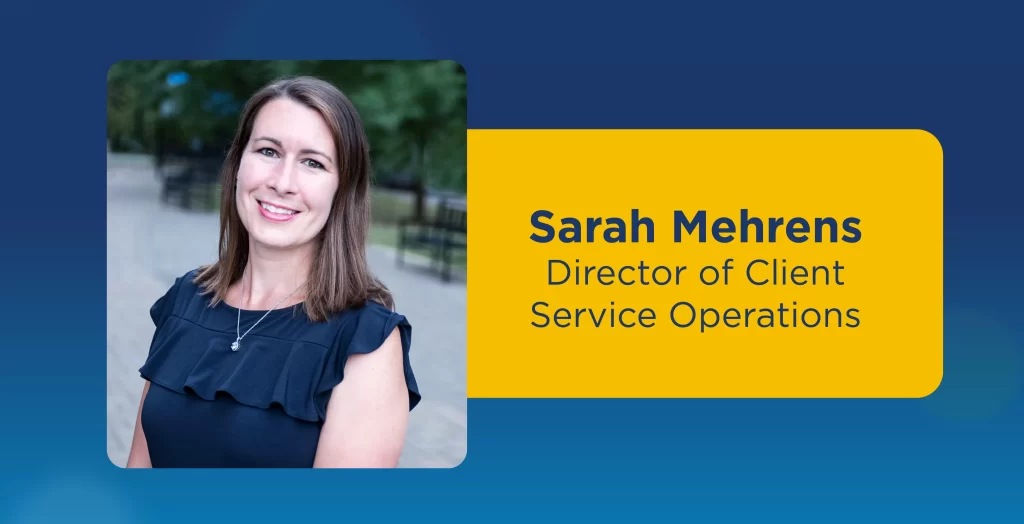
Leadership Lessons
Handling Overcommitment
This month’s Leadership Lesson is authored by Sarah Mehrens.
It’s a new year, and for many, that signifies the opportunity for New Year’s resolutions or a chance to reset personal goals. For the past five years, I have used January as a reset month and chosen a word to serve as my theme for the year. This practice helps me identify areas I want to leave behind, set intentions, and establish new goals. In the past, I have selected words like “Fruitful” and “Seasons.” Ironically, my word for 2024 was “Resilient,” which I might have thought twice about selecting if I had known how difficult the year would be for me… or maybe not. 😊
This year, my word began as a joke with a friend but has since taken on a more serious yet positive direction. My word “Unsubscribe” is rooted in my desire to find a better balance in my life.
Most people who know me realize that I often become overcommitted. I strive to be efficient and effective, but this sometimes makes it difficult for me to say “no.” When I take on too much, even the simplest tasks and experiences can quickly become overwhelming.
I recently found an article on Why You’re Chronically Overcommitted by Israa Nasir on the Harvard Business Review website. As I read through the article, so much of it spoke to me, and I thought it would be worth sharing with the broader team. Below is a summary, and I have attached the original article for your reference, as it is definitely worth reading in its entirety.
I know we all have different perspectives on work-life balance. However, I encourage you to take a moment to read this if you find yourself struggling with chronic overcommitment or if you work with someone who does. Consider implementing or encouraging your team to adopt some of these “micro-shifts” in your lives in 2025. Maybe there are areas you can “Unsubscribe” from to provide a healthier balance.
“Can you take on this project?” Yes. “Can you lead this new initiative?” Absolutely. “Can you organize the team lunch?” Of course. Yes. Yes. Yes….
Here’s Probably Why You’re Overcommitted
Early career professionals often fall into this fallacy: believing that overcommitment — taking on more tasks or responsibilities than they can realistically manage — will make them appear more competent and indispensable. They may feel immense pressure to prove why they were hired or to compare their achievements to more experienced colleagues. Compounded by societal narratives of equating busyness with success, and workplace cultures that reward overachieving, early career professionals can find themselves locked in a cycle of saying “yes” to everything — at the expense of their health, creativity, and long-term productivity.
I believed that taking on more responsibility than I could handle would show others that I was competent, reliable, dedicated, and, most importantly, valuable. What I didn’t realize at that time was that overcommitting came with two major costs: the quality of my work and my health….Doing more was making me less productive. It was also leaving me overworked, overwhelmed, and exhausted.
One factor driving overcommitment is our emotions that are working behind the scenes to influence our decisions and behaviors…
Three Emotional Dynamics that Lead to Overcommitment in the Workplace:
- Desire for validation (especially for managers).
- Fear of rejection and failure by saying “no.”
- Comparison with others.
Breaking out of this emotional cycle requires a shift in mindset: understanding that sustainable success comes not from doing everything but from doing the right things well.
Signs You’re Overcommitted
- Saying yes to a request without considering your capacity.
- Avoiding prioritization and tackling whatever seems most urgent.
- Frequently working late hours or during weekends to “Catch up.”
- Experiencing anxiety or resentment when asked for help or feedback.
- Feeling worried or guilty when you have free time.
- Constantly second-guessing your decisions.
Embrace Micro-shifts to Help You Find Balance
If it’s not working for us, it’s time to make small micro-shifts to help us break out of the overcommitting mindset.
- Regularly assess your workload.
- Practice regular emotional check-ins with yourself.
- Use pre-emptive communication.
- Create a “decision delay buffer.”
- Practice “micro-mastery”.
We often feel the pressure to say “yes” to every opportunity, believing that missing out on anything could set us back… The truth is: not every opportunity is meant for you, and sometimes missed chance can make space for the right chances.

